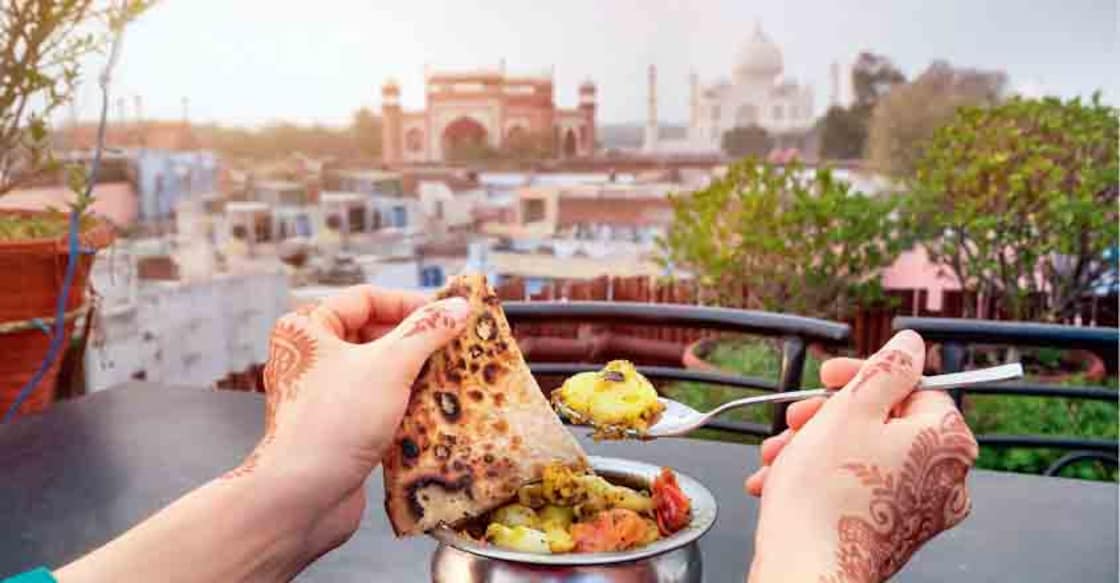How to avoid food wastage during travel

Mail This Article
One of the most critical crises faced by the world population today would be the lack of enough consumable food. Meanwhile, when reports of dire starvation and malnutrition are reported from around the world, the issue of food wastage has been rising on an alarming rate as well. Surveys indicate that travellers who hit the road are more likely to waste large amount of food. Those who travel the world love to try out the different cuisines and delicacies. However, they usually order more food than they actually can eat and throw away the rest. Is shared eating the ultimate solution for this?
Here are a few amazing stories of some travel enthusiasts from around the world who are eager to spread the message of the importance of sharing food, thereby avoiding wastage to a considerable extent.
Swiss cheese fondue
The cheese fondue is an assortment of different cheeses, melted over a portable stove and served in a communal pot. People, as a group, gather around this pot and relish this cheese dish by dipping bread, meat, fruits or vegetables into the flavoursome fondue. Christian Paulie, a vigorous traveller, says that sharing food is like protecting a fellow individual. He adds that when it comes to sharing food, differences like gender, class, religion, race or country doesn’t matter. Christian, who loves the cheese fondue, vows that many a times he has enjoyed the Swiss dish with strangers without the fear of contracting bacterial infections or other communicable diseases.

Samantha Sabel, a graduate student from Washington DC, US, realised the issue of food wastage while on a flight to one of the South-East Asian countries. Her fellow passenger who occupied the seat next to hers had also added a meal to his flight ticket. But when the food came, he just took a bite of it and kept it aside. Samantha says, "I asked him whether he didn't like the food. He replied he didn't. I then asked whether it was okay for me have the food that he has kept aside. He didn’t express any reluctance and I was happy to eat that food."
Shared food is shared happiness
Sharing food, money, resources or even home had been a practice among the travellers and voyagers from centuries ago itself. The travellers believed it their duty to help each other while on a journey. Among Asian travellers, it is very common to share food or other things. There are many who set out on adventurous trips carrying only what is just required for the journey. They are not ashamed to offer or ask for food to people.

However, there are many travellers and social media users who are not admirers of the concept of 'shared eating'. For them, it is disgusting and demeaning to beg for the leftover food.
Major tourist destinations like Thailand verify the bank accounts of foreign travellers before renewing their visa, to ensure that they possess enough money to spend for their basic needs. The country has especially made this law strict in the case of foreigners who stay in Thailand for months. The government of Thailand was forced to take such an action when the number of 'bagpackers' rapidly rose in the country. Photos of foreigners begging on the streets of Thailand were viral on the internet. Similarly the pictures of westerners cleaning toilets in return for a meal were widely shared on the social media. Complaints were frequent that some people steal ketchup and sugar sachets from the McDonald's outlets to feed themselves. The Thai government had decided to take actions after surveys revealed that there was increased displeasure among the natives towards foreign travellers, as instances like these painted their country in a negative light. However, advocates of shared eating say that they shouldn't be included in such a list, and that they genuinely strive to reduce the amount of food wastage.
The story of Amanda Holden, an American traveller, would be inspiring for the adventurous ones who aspire to set out on their dream journey. Amanda began her epic journey from the state of Oregon in the US, and never spent a dollar, even once, for food in her eight-month long journey. She asked people to give her their leftovers or the food items which they planned to throw away after eating some of it. By adopting 'shared eating' Amanda was able to save an impressive $30,000 after her journey. In 2016, media published the story of her unique trip and the world came to know about the economic viability of shared eating. Though she was severely criticised by a section of people, Amanda took all these in her stride and continues to vouch for shared eating.
There have been collective discussions among frequent travellers about whether it was inappropriate to ask for leftovers or share food. However, travellers say that people are generally ready to share their food if asked.
The hunger 'pangs'
'Shared eating' would be appreciated by those who are forced to starve because of various reasons. Like Stephen, a South African sailor, who got stuck in Cambodia after his ship was stranded here. Stephen sleeps in a dingy hostel and sells handicrafts items on a cycle around Cambodia. He often goes hungry without sufficient food to eat in a day. He doesn't mind asking travellers for leftovers as it would feed him well.

Vibhor Agarwal, a youngster from New Delhi, says he would never ask for food to strangers. He however added that it would comparatively be easier for women to get food from everywhere, and that a man who asks for food won't be treated the same way, especially in India.
Cultural taboos
It was at the annual tofu festival held by the people of Thailand to promote vegetarian cuisine that a young woman named Laura Pierce understood the significance of shared eating. As she was about to throw away half a bowl of the tofu dish, she saw a hand extended towards her. He took the plate from Laura’s hand and relished the dish. Though the man thanked her for providing him a delicious meal, this episode stayed in her mind. Laura says that after that incident she never let anyone to extend their hands in front of her for food. She would voluntarily find people who are in need of a meal.
Experienced travellers are of the opinion that taking a sip from a half-finished glass of wine, or a bite of pizza slice or unfinished salad are all part of the great experiences that journeys provide. They say that those who criticise shared eating, where people happily share and enjoy meals, as symbols of starvation or degradation, observe it with an attitude of prejudice. The advocates of shared eating ask whether throwing away excess food which could have satisfied another hungry human being was culturally formidable.
Some cultures and sects prevent people from sharing a meal as they believe the leftover food is 'impure'. There are even people who think that shared eating spreads diseases. However, they seldom realise that most of the food items available in the market could either be cooked in extremely unhygienic conditions or loaded with harmful chemical additives.

Tanya Woods of World Tourism Organization says, "Which bacteria are you scared of? Travellers' lives are always associated with strangers. If you cannot find bacteria on the lips of the strange woman that you kiss, how can you find it in the food that she has touched? It is a false conception that you are forced to claim because you are just worried that others may point fingers at you."

